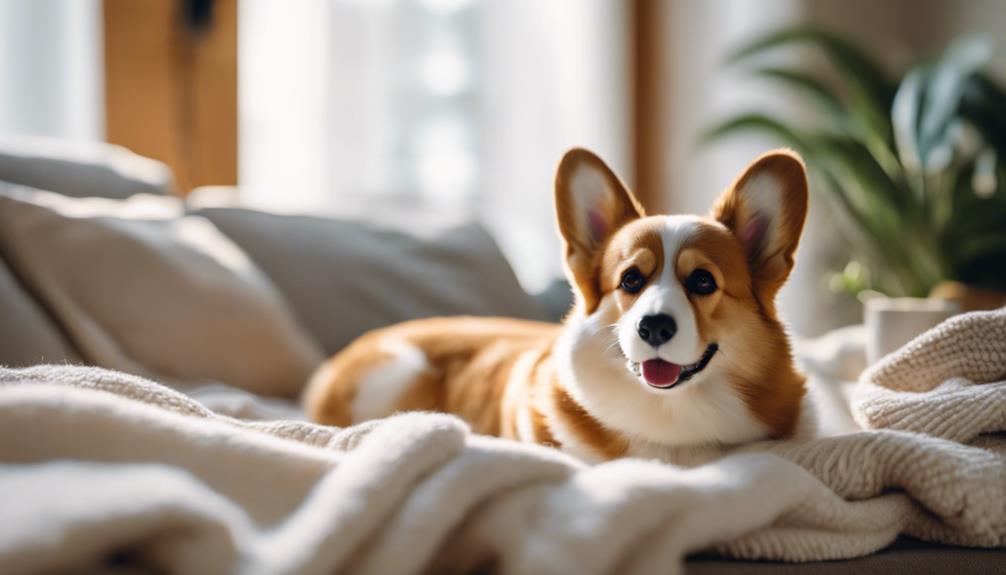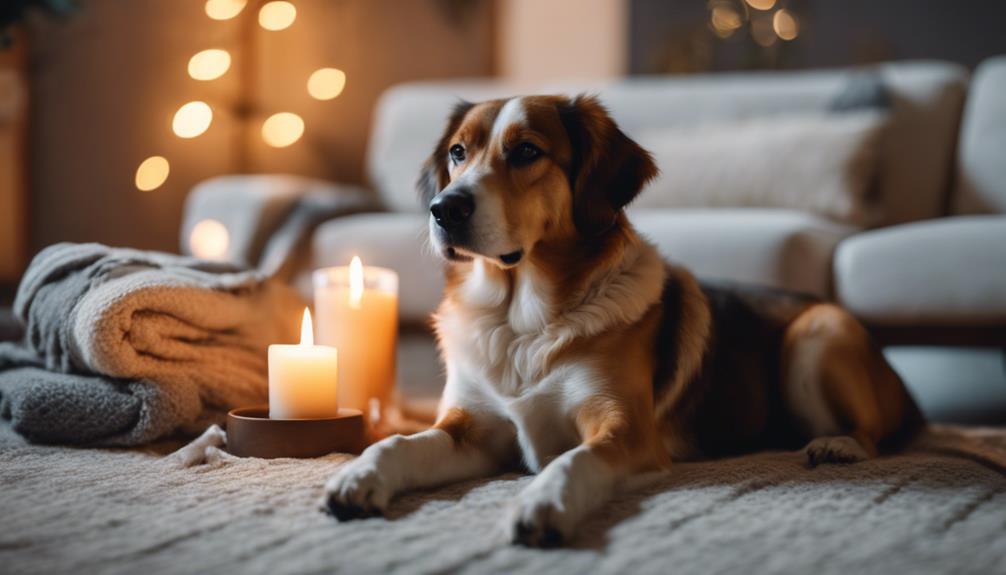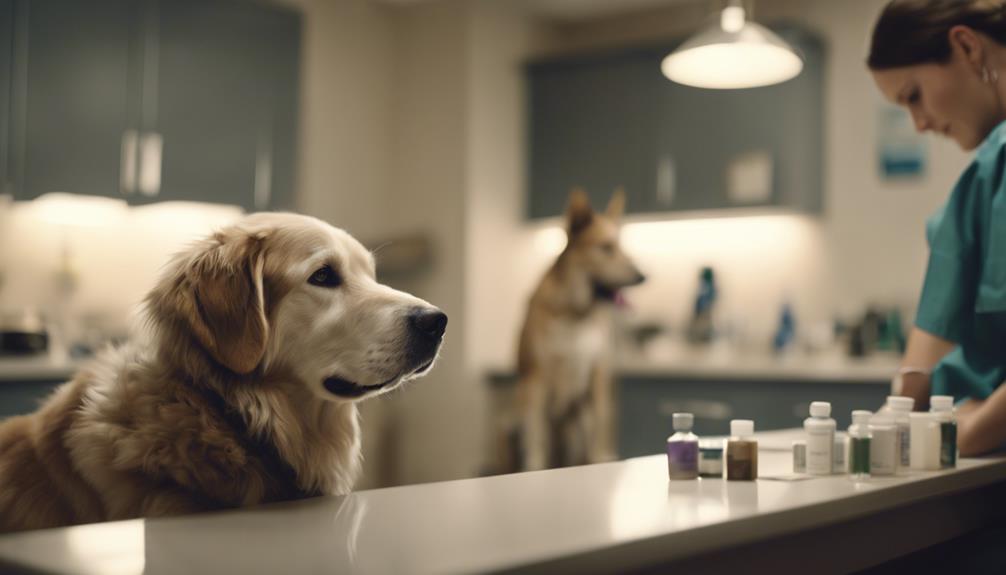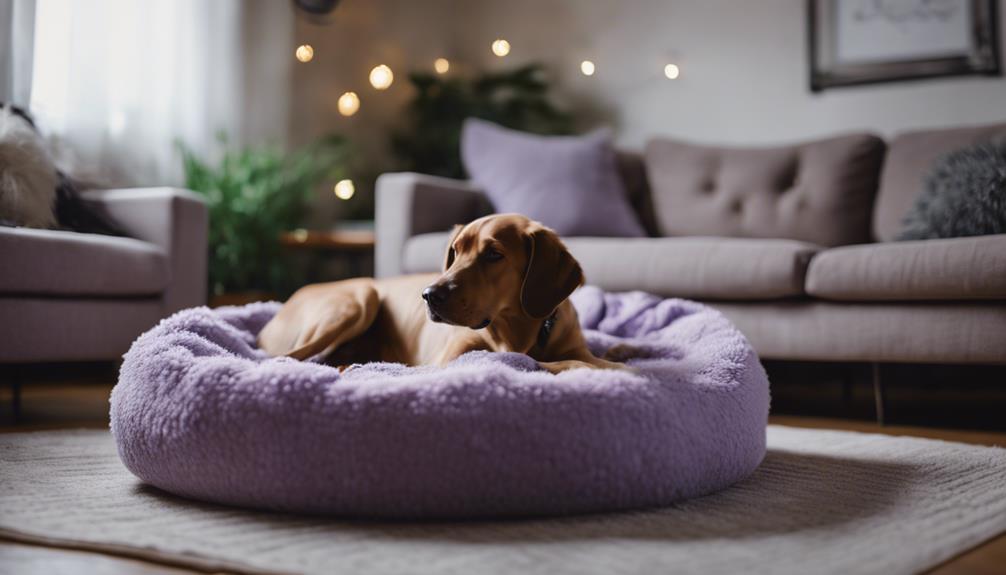Addressing the issue of anxiety in dogs, particularly in breeds like Corgis, necessitates a multifaceted approach. Understanding the specific triggers of your pup's anxiety is crucial, as is creating a nurturing environment that fosters security. Incorporating calming techniques and maintaining a routine of physical activity can significantly improve their mental state. However, when these strategies fall short, it may be imperative to explore professional resources. To effectively implement these strategies, one must consider various methods, each tailored to the individual needs of their pet. What could be the most effective techniques to ensure your dog's peace of mind?
Understand Your Corgi's Anxiety

Understanding the specific triggers and manifestations of anxiety in your Corgi is essential for effective management and support.
Common anxiety triggers for Corgis may include loud noises, separation from their owners, unfamiliar environments, or changes in routine. Recognizing these triggers helps you anticipate and address potential issues before they escalate.
Signs of distress in your Corgi can manifest in various ways, such as excessive barking, pacing, or hiding. Additionally, they may exhibit destructive behaviors or even changes in appetite.
Observing your Corgi's body language is crucial; signs like tucked tails or wide eyes indicate discomfort. By understanding these aspects, you can create a tailored approach to help your Corgi feel more secure and reduce their anxiety effectively.
Create a Safe Space
Creating a safe space for your Corgi is an effective way to alleviate anxiety and provide them with a comforting environment where they can retreat during stressful situations.
This space should include cozy corners, such as a quiet area with soft bedding and toys, allowing your dog to feel secure.
Incorporating familiar scents can also enhance this environment; using items like your worn clothing or a favorite blanket can help your Corgi feel more at ease.
Additionally, consider dimming the lights or closing curtains to create a calming atmosphere.
By establishing this sanctuary, you allow your Corgi to decompress and regain their composure, significantly reducing their anxiety during challenging moments.
Use Calming Techniques

Implementing calming techniques can significantly help reduce anxiety in dogs, providing them with the comfort and reassurance they need during stressful situations.
One effective method is playing calming music specifically designed for dogs, which can create a soothing environment and promote relaxation.
Additionally, aromatherapy sprays containing natural ingredients like lavender or chamomile can be used to help ease tension. These sprays can be applied to your dog's bedding or in their safe space to create a calming atmosphere.
Consistency is key; regularly incorporating these techniques can foster a sense of security for your pup.
Engage in Regular Exercise
Regular exercise plays a crucial role in alleviating anxiety in dogs by providing them with an outlet for pent-up energy and promoting overall physical and mental well-being.
Engaging in outdoor activities, such as walking, running, or playing fetch, helps dogs release their energy, reducing restlessness and nervous behaviors. Additionally, these activities offer mental stimulation, which is vital for a dog's cognitive health.
Incorporating variety, like visiting a dog park or exploring new trails, can keep the experience exciting. Aim for at least 30 minutes of exercise daily, tailored to your dog's breed and age.
Not only does regular exercise strengthen the bond between you and your pup, but it also fosters a calmer, more balanced demeanor in your furry friend.
Seek Professional Help

Seeking professional help can be a vital step in addressing severe anxiety in dogs, particularly when behavioral modifications and home strategies have proven insufficient. A veterinary consultation is essential to rule out any underlying medical conditions that may contribute to anxiety.
Furthermore, a veterinarian can recommend a certified animal behaviorist who specializes in behavioral therapy. This therapy often includes techniques such as desensitization and counter-conditioning, helping dogs gradually adapt to anxiety-provoking situations.
If your dog's anxiety is severe, medication may also be suggested. Remember, professional guidance is crucial for developing a tailored approach that meets your dog's specific needs.

